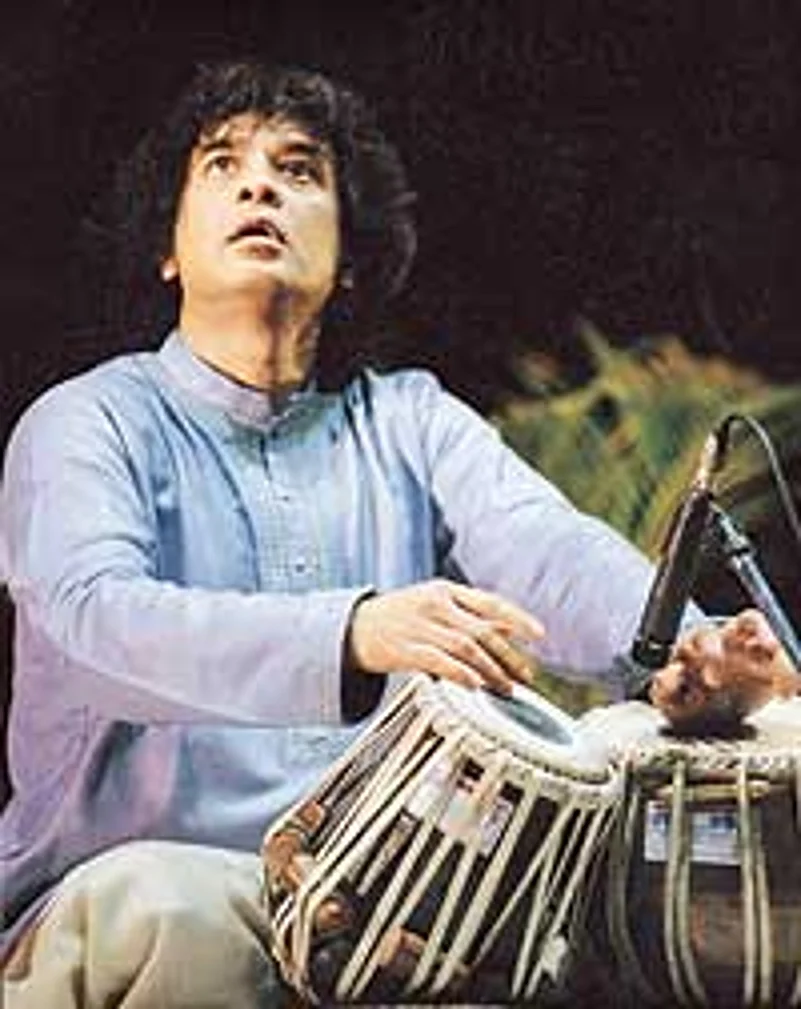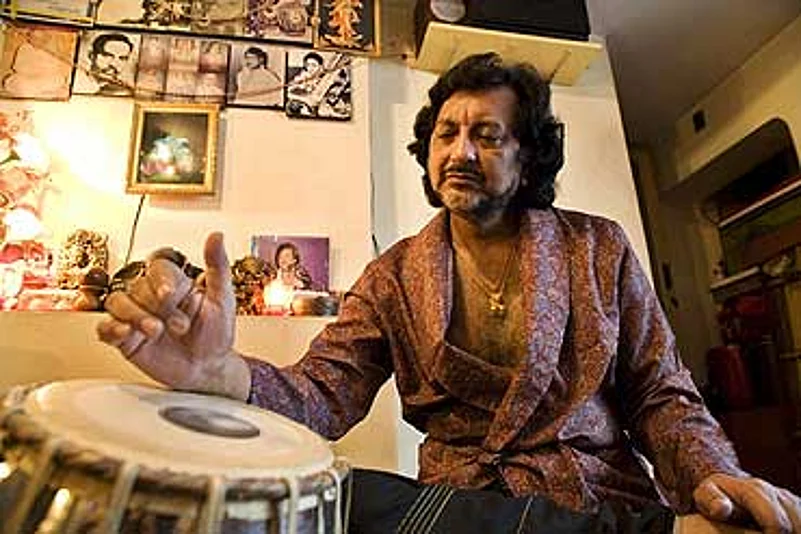
| Zakir Hussain, 57 Alla Rakha's star son is tabla's absentee landlord |
So with the last of the thinkers gone, will the world of tabla be the same again? Will it decline once again into merely an accompanist's instrument? Ask anyone today to name a great tabla soloist, and chances are they will name Zakir Husain and then fall silent. The son of Ustad Alla Rakha, he has not only kept alive his father's legacy, but gone beyond it to carve out a very special place for himself in the world of music. But he lives in America, so apart from his brother Fazal Qureshi and Anuradha Pal, who also learned from the father, few were able to imbibe that incomparable artistry.

| Sukhwinder S. Namdhari, 43 Another of Panditji's reputed pupils |
There is little left of the illustrious legacy of Ustad Ahmedjan Thirakwa of the Faroukhabad gharana. His nephew Rashid Mustafa Thirakwa is an accomplished player, but the magic is missing. The Delhi gharana today is almost non-existent after its big exponents, Ustad Latif Ahmad Khan, Pt Chatur Lal and later Ustad Shafaat Ahmad Khan passed away. Lost too is the tradition of Pandit Samta Prasad, another of Benares' celebrated performers. Similarly, the Lucknow gharana's great tradition is more or less dormant in India—its premier exponent Pandit Swapan Chaudhury stays mostly in the US. The Meerut or Ajrara gharana, brought to prominence by the great Ustad Habibuddin, is hardly visible—or rather audible—today. While there are still some artistes of the older generation—Pandit Shankar Ghosh and Lachchu Maharaj and other senior and gifted tabla players like Pandit Anindo Chatterjee, Nayan Ghosh, Anand Gopal Bandopadhyay and Sanjay Mukherjee—who continue to carry the tabla tradition forward, they can't match the genius and star quality of the four greats.

Kumar Bose, 56
Inherits the Kishan Maharaj legacy
But thankfully, there is a new generation of tabla players who have the potential to take India's tabla tradition to great new heights. Among them is Kumar Bose, seniormost disciple of Pandit Kishan Maharaj who has imbibed much of his guru's profound and inventive artistry. "Pandit Kishan Maharaj was a person who had an impact on your music as well your life, like a philosopher. A strict teacher, he always stood for authenticity in his art," says Bose. Two other rising tabla stars are Sukhwinder Singh Namdhari and Sandeep Das, also proud bearers of Kishan Maharaj's legacy. The gurukul established by Pandit Kishan Maharaj may well produce a few more stars, because he was an inspired teacher who shared his knowledge and skills with his students with whole-hearted generosity and dedication.
But Kishan Maharaj was an exception, and many illustrious tabla traditions have been lost forever. Says renowned sarod player Pandit Buddhadev Dasgupta: "A lot of tabla gharanas have just faded away after their maestros passed away. Today, it may be difficult to have new thinkers who offer something new to the world. Going forward, we may have an amalgamated style with glimpses of many different gharanas fused in different ways."
Other musicians and experts are more optimistic about the future of tabla. Says Chakraborty: "Undoubtedly, it is the end of a yuga, but I am confident a new generation will arise to take the place of the old masters." Indeed, there are young tabla players who are fast gaining recognition—Shankar Ghosh's son Bickram Ghosh and disciple Tanmay Bose who are carrying on the Faroukhabad tradition; Samar Saha, disciple of Kishan Maharaj's contemporary Natu Ganguly; and Akram Khan.
Kishan Maharaj once said there are three stages in an artist's lifespan: diksha, shiksha and pareeksha (initiation, learning and an endless examination). It remains to be seen how well the new generation traverses these stages.






















